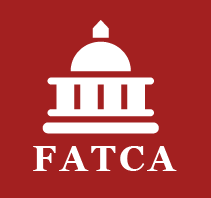 The Feasibility Study on a simplified Relief at Source System: Purpose and Context
The Feasibility Study on a simplified Relief at Source System: Purpose and Context
PwC has been appointed in 2011 to carry out a feasibility study on a simplified relief at source system, implementing the principles of the European Commission’s FISCO Recommendation (C(2009)7924 of 19 October 2009). The FISCO Recommendation suggests to the Member States (MSs) possible ways to make their withholding tax (WHT) relief procedures on cross-border securities income simpler and more efficient. In particular, the Recommendation designs the main features of a simplified relief at source system whereby authorised financial institutions (AIs) would be able to make claims on behalf of their investors and on a pooled basis. This would be coupled with the provision of investors’ specific information to both the source and the resident countries (SC and RC).
In the framework of this feasibility study, the main question is “how”, in the context of a simplified relief at source system, the international exchange of information should be organised both towards the SC (to ensure correct application of the double tax treaty (DTT) rates) and towards the RC (to ensure correct income tax treatment and therefore tax compliance) with specific consideration to the channels used in this respect. In this regard, the study covers the assessment of two potential Models: the Source Country (SC) Model and the Authorised Intermediary Country (AIC) Model. The AIC Model largely corresponds to the SC Model, whose main elements and principles are described in the OECD Implementation Package and are being followed up in the TRACE discussions.
Addendum to the Feasibility Study: Potential effects of the Most-Favoured Nation (MFN) clause
End of last year, PwC has also been requested to assess in an addendum whether the developments concerning FATCA had an impact on the conclusions of the initial feasibility study, in particular given the potential effects of the Most-Favoured Nation (MFN) clause included in Article 19 of the Directive on Administrative Cooperation (Council Directive 2011/16/EU). EU Member States may be legally obliged by the MFN clause to offer to other Member States the same level of cooperation offered to the US under each FATCA agreement. Therefore, FATCA agreements between the US and the Member States could result in a general increase in the amount of information that Member States have to make available to each other for residence country tax-compliance purposes. This could in turn have an impact on the relief at source system as foreseen in the OECD implementation package, considering that the second objective of the relief-at-source system (ensuring compliance in the residence country) could be met by other means (and irrespective of the application of a double tax treaty).
The addendum therefore supplements the final report with a series of chapters essentially focusing on residence-country reporting. The addendum: i) examines the application of the MFN clause; ii) assesses the possibility of simplifying the relief-at-source system, as envisaged in the study, with respect to both residence-country reporting and source-country reporting; iii) reassesses the advantages linked to the use of a routing of information passing through the Member State where the reporting financial institution is established; and, finally, iv) examines possible alignment of the reporting provided for under the relief-at-source system, under FATCA (in application of the most-favoured-nation clause) and under the Savings Directive (and amending proposal).
Recent developments underline the willingness to further clamp down on tax evasion and tax fraud
No need to say that the further recent developments, among others (i) the mandate given by the council to the Commission on 14 May 2013 to negotiate amendments to the EU’s agreements with Switzerland, Liechtenstein, Monaco, Andorra and San Marino on the taxation of savings income, (ii) the proposition by the Commission on 12 June 2013 to amend the Directive on Administrative Cooperation to further expand the scope of automatic information exchange to other categories of income and capital (i.e. dividends, capital gains, all other financial income and account balances); and, (iii) the report presented by the OECD on 18 June 2013 to the G8 Summit, outlining concrete steps needed to put in place a global, secure and cost effective model of automatic exchange of information are concrete measures and important steps to clamp down on tax evasion and tax fraud.
We would like to invite you to consult the publication of the study on the TAXUD web-page dedicated to “Studies made for the Commission”
There is also a section on the FISCO study in the TAXUD web-page concerning “Taxation of securities income received by individuals“
